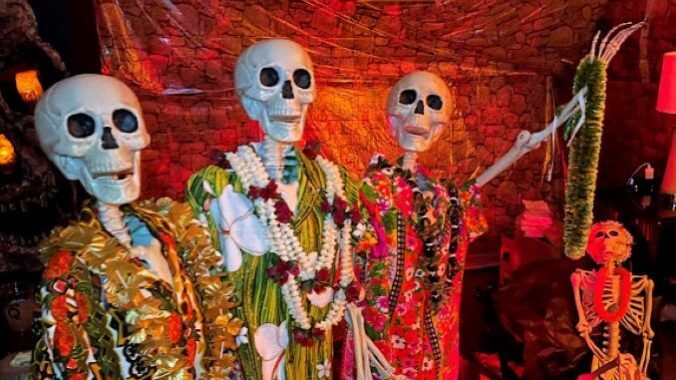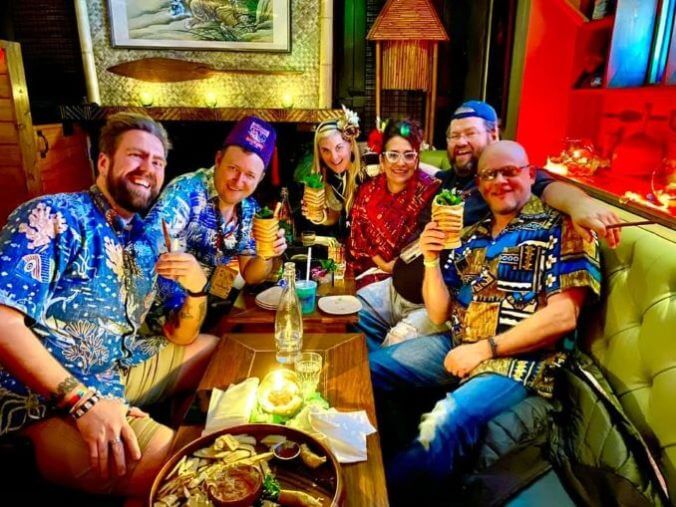Inuhele Brings a Celebration of Tiki to Atlanta
Photos courtesy of Inuhele
The internet’s not entirely bad. Sure, it might have kicked off this final death spiral that humanity is currently speeding along on, but at least it helped us have some fun along the way. Look at how many hobbies and subcultures have thrived since the internet became a daily presence in our lives and made it easy for people with the same interests to find each other. Do you think pinball would’ve made a comeback without the internet? Or shoegaze? Or, most relevant to this conversation we’re having, tiki?
Yes, tiki’s been doing really well over the last several years. After collapsing in popularity in the ‘70s and ‘80s, the midcentury homage to Polynesian culture (and monument to kitsch) has been revived throughout the world by fans both old and new. Decades-old bars and restaurants have seen renewed interest, while new tiki spots have popped up in increasing numbers during the 21st century. Pretty much any self-respecting American city will have a tiki bar or two these days, and tiki’s influence can be found in a burgeoning scene of themed bars with other, non-tiki aesthetics. And like all thriving subcultures, there’s a network of conventions and events devoted to celebrating tiki throughout the calendar year.
Inuhele, which is being held at the Courtland Grand in Atlanta from January 19 to 21, is the next major show on the tiki circuit. What started as a tour of home tiki bars in the Atlanta area has grown into an annual celebration of Polynesian pop culture, with a weekend full of musical performances, tiki-themed activities and shopping, and panels covering such topics as mug collection, home bar design, and the history of tiki and the Polynesian customs that inspired it. Mostly though it’s about like-minded people communally enjoying a classic and often forgotten piece of American pop culture.

-

-

-

-

-

-

-

-

-

-

-

-

-

-

-

-

-

-

-

-

-

-

-

-

-

-

-

-

-

-

-

-

-

-

-

-

-

-

-

-








































